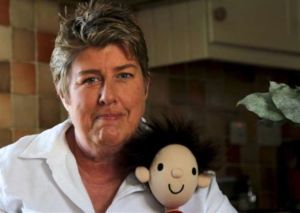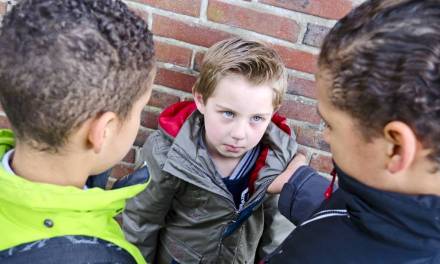A child’s personal and emotional development are crucial focal points in their educational journeys. They may face certain barriers from a young age that could hinder their progression so we must mitigate this as much as possible – how can we do this?
 We had a discussion with Training Director, Alison Knowles, the creator of Ollie and his superpowers. We focused on emotional development and how we can support children to overcome the feelings that may be holding them back from reaching their educational potential.
We had a discussion with Training Director, Alison Knowles, the creator of Ollie and his superpowers. We focused on emotional development and how we can support children to overcome the feelings that may be holding them back from reaching their educational potential.
The current problems for children’s well-being
Many children in today’s society are struggling to communicate effectively or build meaningful relationships which can then allow them to cope better in adult life. This can potentially lead to a generation of lost children who cannot handle or express their emotions responsibly.
Behavioural and mental health challenges could be due to an underlying emotional problem which needs to be addressed early. Ali said:
“We’ve got kids that don’t know how to deal with the basic emotions because they’ve never been taught emotions properly. Some kids in our programs can then recognise that emotions are just like their bodyguards and it’s about them becoming open-minded enough to accept that and deal with their emotions head-on.”
Finding solutions for students with emotional-based school avoidance or those who are dysregulated can come by asking exactly why they are behaving this way. By finding this you can then implement a supportive structure or model for them to overcome these barriers.
Find the root cause
A child may be misbehaving or isolating themselves because of something they cannot express well. However, it is important that you find whatever is going on in their personal life or if something has happened to them that may be the reason as to why they are behaving in a certain way. A good way to support students is by implementing early intervention, Ali added:
“Early intervention is the only way we’re going to improve. It’s so important that we understand children’s emotions because every time there’s a transition or a bump in the road, they’re going to look externally. The sooner we can teach them how to manage their emotions the sooner they’ll be able to handle whatever life throws at them and they will actually believe in themselves.”
By addressing a specific need in a child early, you can then integrate a solution that is most suited to them. It’s also good to encourage children to open up more about how they are feeling, what they are thinking and what they’d like to do. Ali stated:
“Therapeutic models in theory are good enough. The problem is how they are explained. Most adults can’t explain how they are feeling, let alone children. Emotions aren’t tangible. How can we expect kids to take charge and manage them?”
It’s very difficult to talk about emotions, so by allowing children to become comfortable from an early age, they are going to be well-versed when they reach their teenage years and adulthood on how to handle these feelings.
A child may have several barriers that are preventing them from progressing with their education. What would you do to help them overcome these hindrances? What strategies would you deploy? Ali highlighted a good technique:
“When something’s wrong, it’s a part of you, not you entirely, and so we separate that part. We need to encourage them to separate from it and you get to the root of behaviours driven by emotion. All behaviour serves a purpose. Even ADHD and anxiety serve a purpose. We just need to get to the root of it.”
Separating oneself from an emotion that is triggering you can allow you to recognise that this is just an emotion and can be handled by taking certain steps. When supporting a child, provide them with high-quality pastoral care and take an interest in their lives. Find what makes them passionate and you can overturn their minds into thinking more positively.
The potential of online learning
Online learning can allow children to learn in comfortable environments where they can feel relaxed and focus solely on their education. It’s important to find what works for each child and ensure online learning will be beneficial for them. Ali said:
“Some kids are extremely happy online, they’re happier than we ever were. You’ve just got to make it entertaining. If you talk mundanely you’re going to lose their attention. When we’re delivering something to children, we’ve got to engage their imagination, not just sit there and preach.
They’re going to engage with things that are fun and areas that can help overcome your own bodyguard. Kids love being online. They’re so much more comfortable than we are, it’s all they know.”
By engaging a child with online learning they can reignite their passion for learning and also learn to harness their emotions once they positively reintegrate and have more interactions with people. Ali summarised by highlighting how important it is to encourage children to feel confident in themselves:
“We need to create a generation of kids that aren’t terrified of their shadows and aren’t afraid to say what they think or feel.”
If you would like to learn more about an effective online alternative provision that can help address specific behavioural challenges and support a child’s well-being visit EDClass, call 01909 568338, send an email to mail@edclass.com or enquire for more information here.










